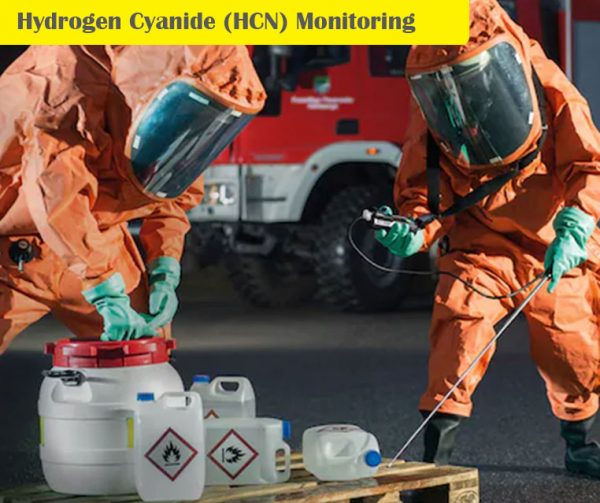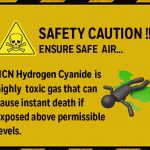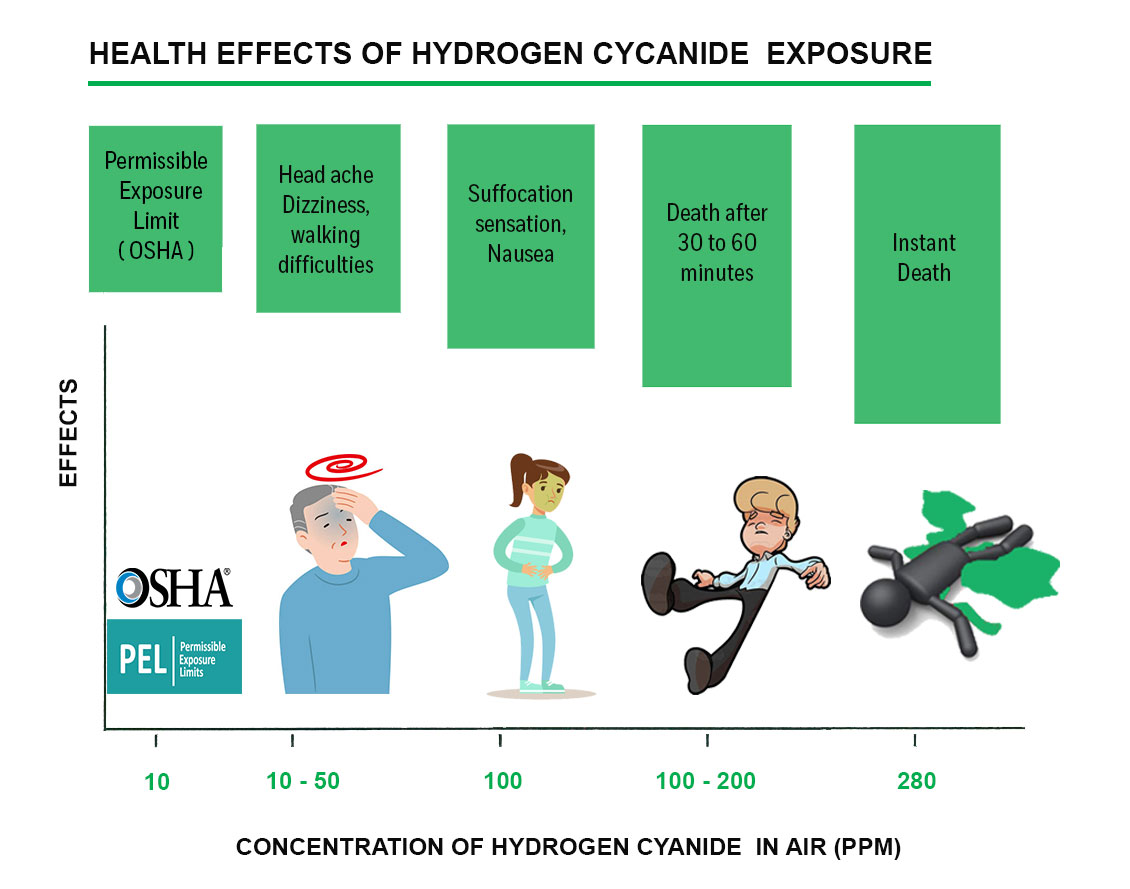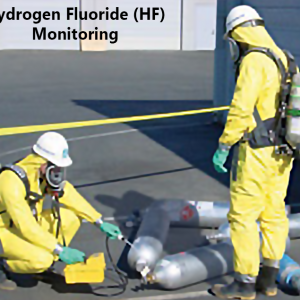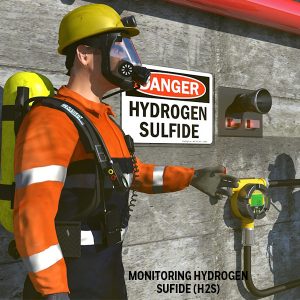Product Details
Hydrogen Cyanide (HCN) Monitoring – For Stack , Ambient & Indoor
Hydrogen Cyanide HCN Monitoring for Stack, Ambient & Indoor Environments in industries needs to be done periodically to ensure the safety & standards of the Quality of air that the workers breathe.
HCN is highly toxic by all means of exposure and causes abrupt respiratory and cardiovascular problems and finally death in few minutes if exposed at high levels. Lower concentration exposure can cause nausea, eye irritation, headache and vomiting and in some cases coma and death.
Description
Hydrogen Cyanide (HCN) Monitoring
Hydrogen Cyanide HCN Monitoring
Hydrogen Cyanide is a colorless gas ( At higher temperatures ). Hydrocyanic acid is a colorless or pale blue liquid, with bitter almond odor and bitter burning taste. Hydrogen cyanide is highly volatile and produces lethal concentrations at room temperature and the HCN vapor is flammable and potentially explosive. Its used as 96% aqueous solution and is soluble in water.
Hydrogen cyanide is a predominant industrial chemical and primarily used in the manufacturing of plastics, synthetic fibers like nylon, paints and other chemicals, ore-extraction, electroplating, dying, printing, photography, metal cleaning etc. HCN and other cyanide compounds are also being used as a fumigant to control pests.
| Name | Formula | Characteristic | Lower Explosive Limit | Upper Explosive Limit | Vapor Density | Vapor Pressure | Molecular Weight | Ionization Potential | Odor Threshold |
| Hydrogen Cyanide | HCN | Rotten eggs | 5.6 | 40 | 0.93 Slightly Lighter than air | 630mmHg | 27.03 | 13.6eV | 0.58 ppm |
Common Sources of hydrogen cyanide
Hydrogen cyanide is released from a several natural processes such as, by bacteria, fungi, volcanic activity etc. Other sources includes industrial processes, from combustion or from accidents involving HCN transport. Combustion processes produce hydrogen cyanide gas in the form of gas. Other sources of HCN emission includes building fires, cigarettes, vehicles exhausts and fires involving nitrogen-containing materials such as polyurethane foams.
Hydrogen Cyanide HCN Monitoring services:
Apzem’s Air Quality monitoring is done by industrial experts with years of rich expertise in the domain of air quality monitoring & dust, fume control. HCN Gas Level monitoring is primarily done to detect and measure parts per billion levels of HCN
Health Effects of Hydrogen Cyanide Exposure
Exposure to hydrogen cyanide can be by anyone of the several ways such as breathing, eating, or drinking the substance or by skin or eye. Severe health effects will occur if exposed to HCN and these effects differs based on the concentration, form of chemical, dosage, duration of exposure etc. HCN’s toxic nature restricts the usage of oxygen by the body. Initial effects of exposure includes sickness, dizziness, headache, confusion and drowsiness. Short Term exposure can cause unconsciousness, fitting, coma and death. It might also cause long term brain and nervous system damage.

